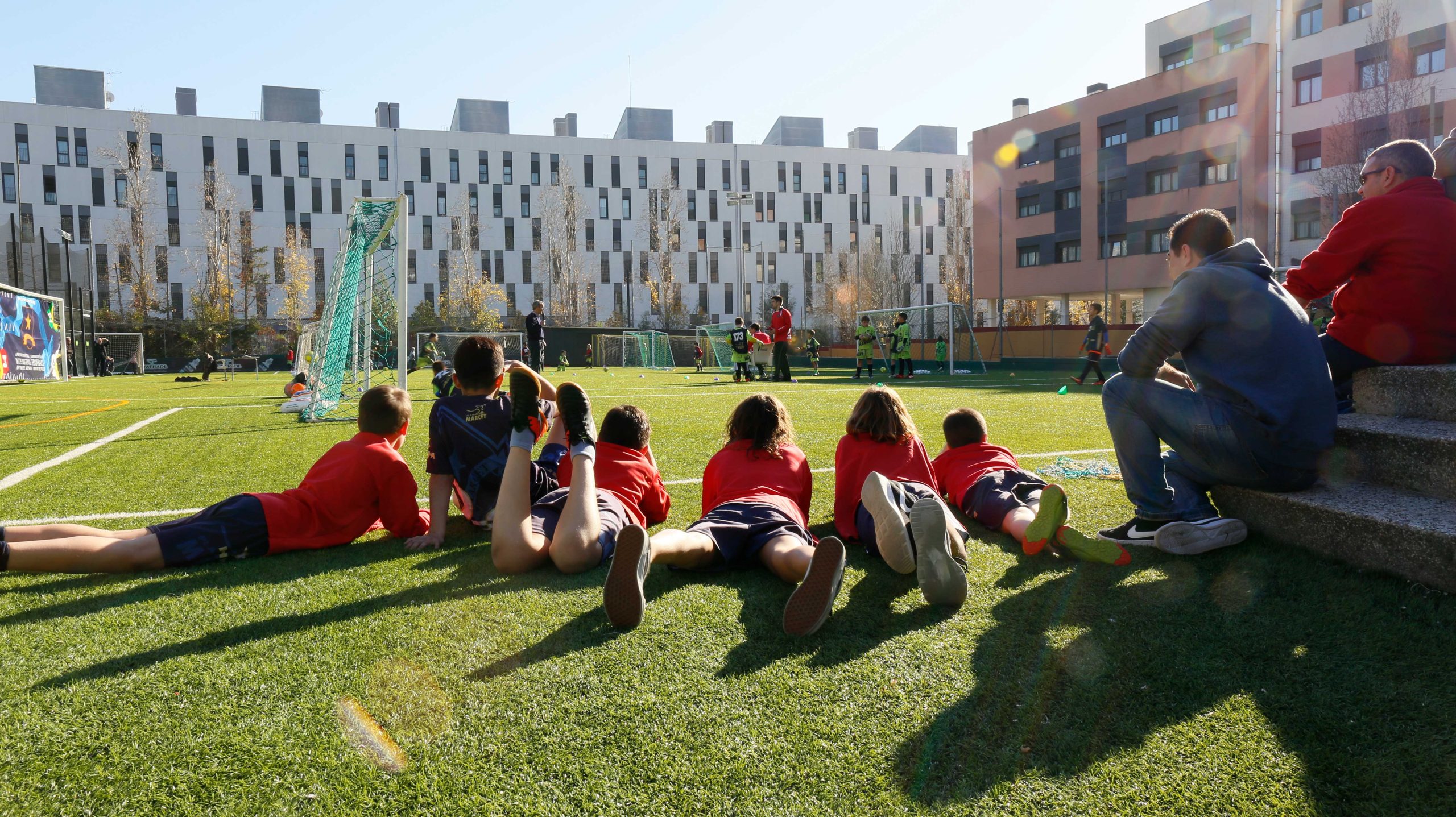High Performance Academy
Last year we were delighted to have the opportunity to visit the Christmas camp at Barcelona Proficiency Academy, where we were able to see at first hand how the camp works, as well as talk to some of the camp staff who work with the young fooballers on a day to day basis.
In this article you will discover the great advantages that attending a football camp can offer your child. You will also be able to find out a lot more detailed information from the professionals who manage one of the world’s best football camps.
L’expérience a été enrichissante et le sera aussi pour vous, étant donné que nous avons réuni suffisamment d’informations pour vous emmener, pour un instant, à l’une des meilleures académies de football du monde.
Arriving at the academy
We started our visit to the academy by attending the day’s first training session. There was a wonderful atmosphere of camaraderie among the young players and we could see how much fun they were having in their training. The exercises helped build good communication between the players. We saw a great variety of exercises and drills (both on and off the ball), instructions, corrections, short talks by the coaches as well as physio sessions, everything that characterises professional football coaching.
After this first taste of camp life we had a meeting with the Academy’s coordinator, Nina. This gave us the chance to say thanks for her professionalism and availability in responding to all our questions and the solutions she offered to the requests we made during our visit.
Given all the success that the academy has had we wanted to get to know the philosophy and the methodologies of the academy in a little more depth. We know of the many concerns parents have when they’re considering the question of whether to send their child to the academy. During our visit we put ourselves in the shoes of concerned parents. We put to academy staff these frequently asked questions such as ‘is my child going to be looked after properly?’ ..’will they settle in easily?’ .. ‘will they have a future as a professional footballer?’ We asked all these questions and many more of the staff members who were kind enough to give us interviews, and you will be able to read more about this below.
Physiotherapy
Firstly we spoke to Bianca Ferrando, the academy’s physio. She talked to us about injuries, diet, exercises and much more.
Bianca talked about the demanding training sessions that the young players participate in. She said there is no specific physical care needed for the small injuries that the young people can sustain, which are usually the result of tiredness. This risk of this diminishes considerably using the proprioceptive system. Bianca explained to us that injuries normally occur when there’s a sudden change of sensation or an unexpected position. In order to help avoid future injuries, Bianca recommends strengthening exercises. Watch the video where Bianca explains more.
What is the proprioceptive system?
You might be wondering what the proprioceptive system is. It is a system which works to orientate our brain, its purpose being to receive information about the movement and position of the parts of the body, both in relation to each other as well as to the external environment. The proprioceptive sensitivity is primordial in humans, given that the information it provides is very important regarding sudden and rapid movements. It contributes to maintaining muscle tone.
View complete school description
Psichology
Later we spoke to Rafael Rodriguez, the academy’s psychologist, who is involved with a variety of issues related to the participants’ induction and settling in period when they arrive at the academy. He works with both short and long term camp participants. Rafa emphasised the advantages that children gain from being in the diverse environment of the academy and defined his methods to resolve one of the main concerns that parents have when deciding to send their child to a camp: how well their child will settle in and feel at home.
In terms of the model the academy uses to guide the students, Rafael told us that what he seeks to do is help the young people become more autonomous and independent in their learning process.
Training
We also had a chat with Franco Sanchirico, one of the football coaches and the coordinator of the academy’s technical analysis team. Franco talked us through the training process at the academy.
He talked about the potential of current pupils at the academy, what the training sessions are like, the long and short term programmes etc. We also learned about the views of the training staff when it comes to what the parents can do. Franco emphasised that the academy works with the young players on a personalised basis. He also described the training methodology, including how they try to help the players to work out the right way to address the errors they make.
Are you interested in this camp?
Get more info. Get a quote for free
The residence
Iñaki Rodriguez, head of the academy’s residence explained to us what day to day life is like at the residence. The Barcelona Proficiency Academy is home to young footballers from the ages of 3 to 22 years, from many different nationalities and cultures. Each student is treated according to their particular needs.
Our customers
We also had an opportunity to interview two young people who were students at the academy. They were Theo and Arnaud, two French boys, who have played for local football clubs at home in France for many years and who decided to take part in the Christmas Camp at the Barcelona Proficiency Academy.
Theo and Arnaud were both happy at the camp. They told us about the warm welcome of their camp mates and their smooth immersion into the programme.
For Arnaud it was the first time he had attended a camp outside France and he praised the technical, tactical and physical training. He was most impressed by the professionalism of the academy.
Theo told us that he had also had a great time at the academy. As with Arnaud, it was also his first time outside his country. He was also very happy with the system of coaching.
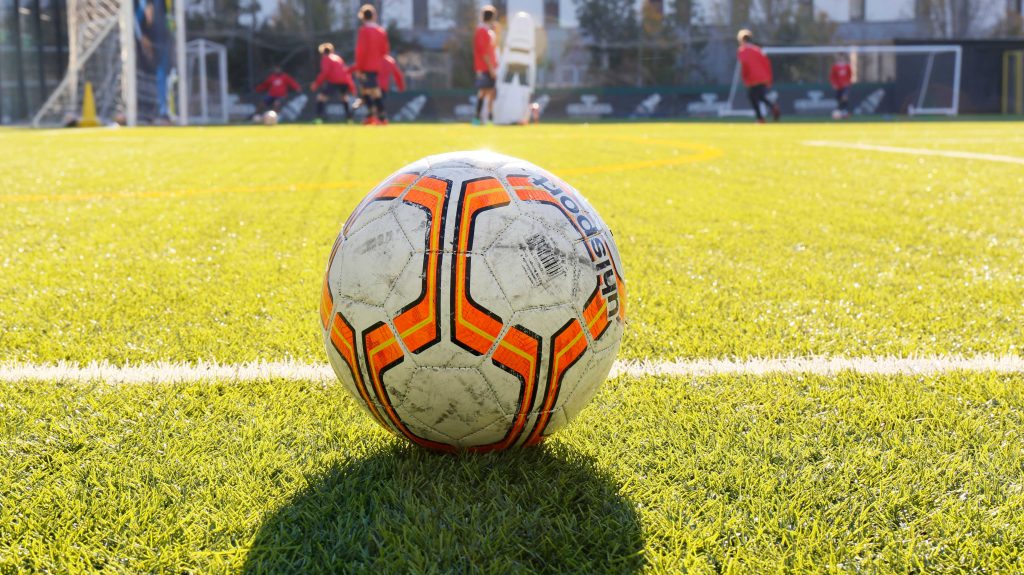
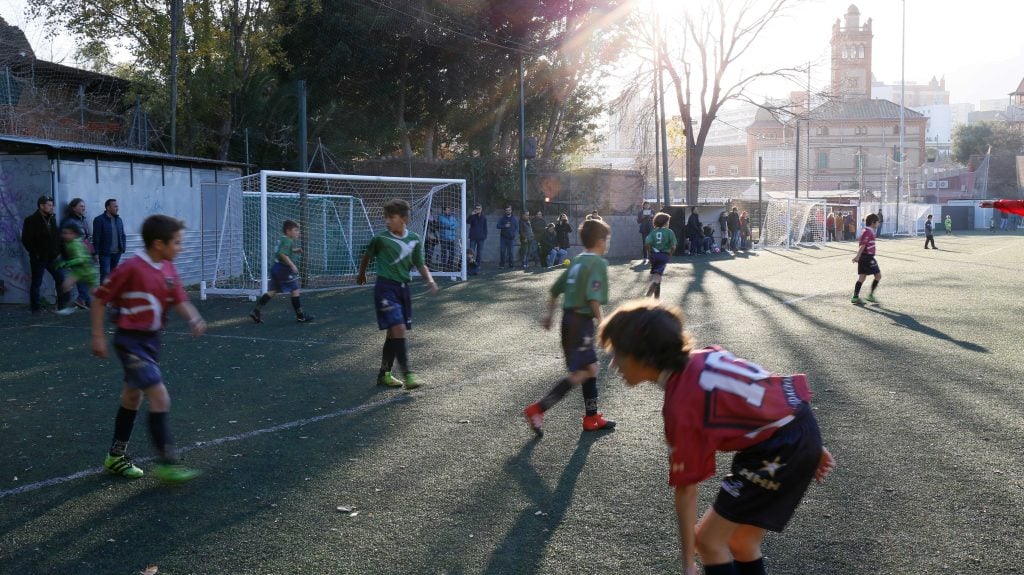
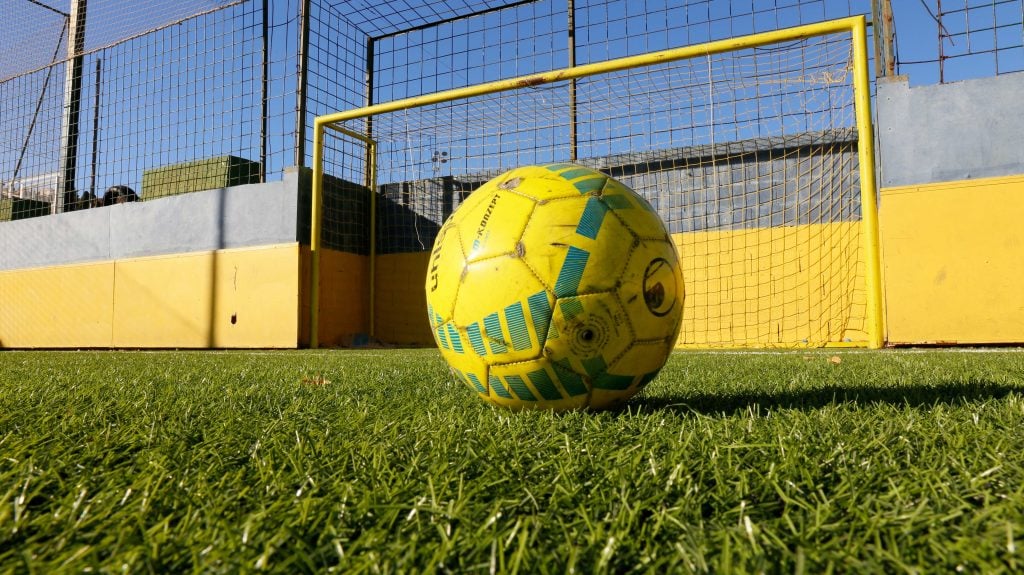

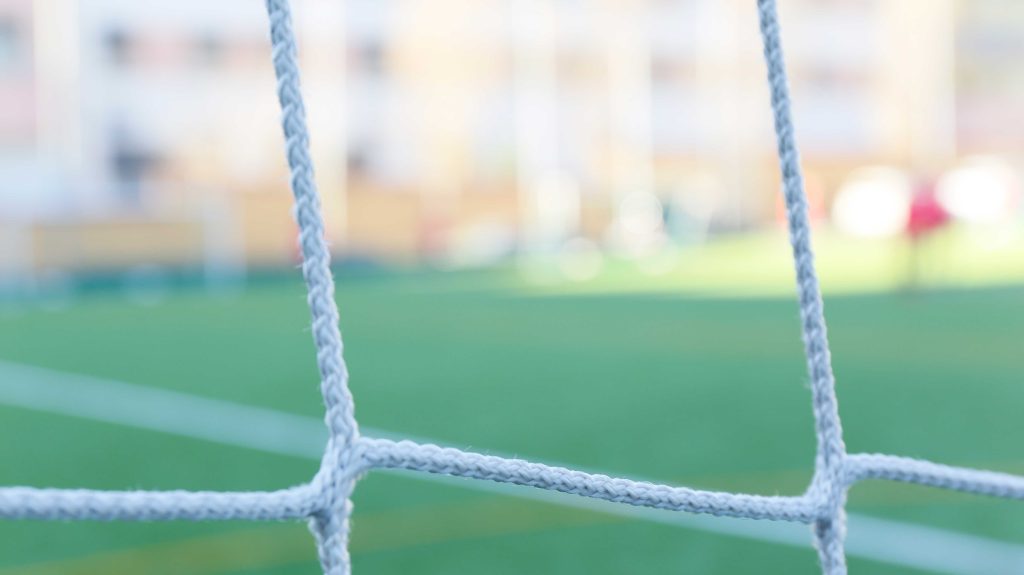
Christmas tournaments
The visit included an additional treat. After the first interview sessions we took a break to attend a fantastic goalkeeping tournament. We were surprised by the young age of the goalkeepers – they were such small children who had developed very impressive skills.
The format of the tournament was great – the goalkeepers played against each other, one on one and the winner was the goalie who scored the most goals. One of the most important aspects we noted at all the academy competitions was the great level of sportsmanship. Although there was a high competitive element during games and a strong desire to win, once the competition was over everyone was good friends again.
That wasn’t all. At the tournaments there were lots of family members present to cheer on their children.
Head of academy
The manager of the academy, Natxo Señor, talked us though the workings of the academy. Our discussion covered areas such as the philosophy of the academy, the great variety of students attending, the possible future paths that students can consider. He told us about some professional footballers who had been through the academy, and more.
For Natxo, the aim of the academy is clear. ‘We try to empower players to take their own decisions, off the field as well as on, in matters related to football and their wider lives. It is his aim to provide the young people with what they need to be free to make decisions and that that they are decisive in all the decisions they make.

